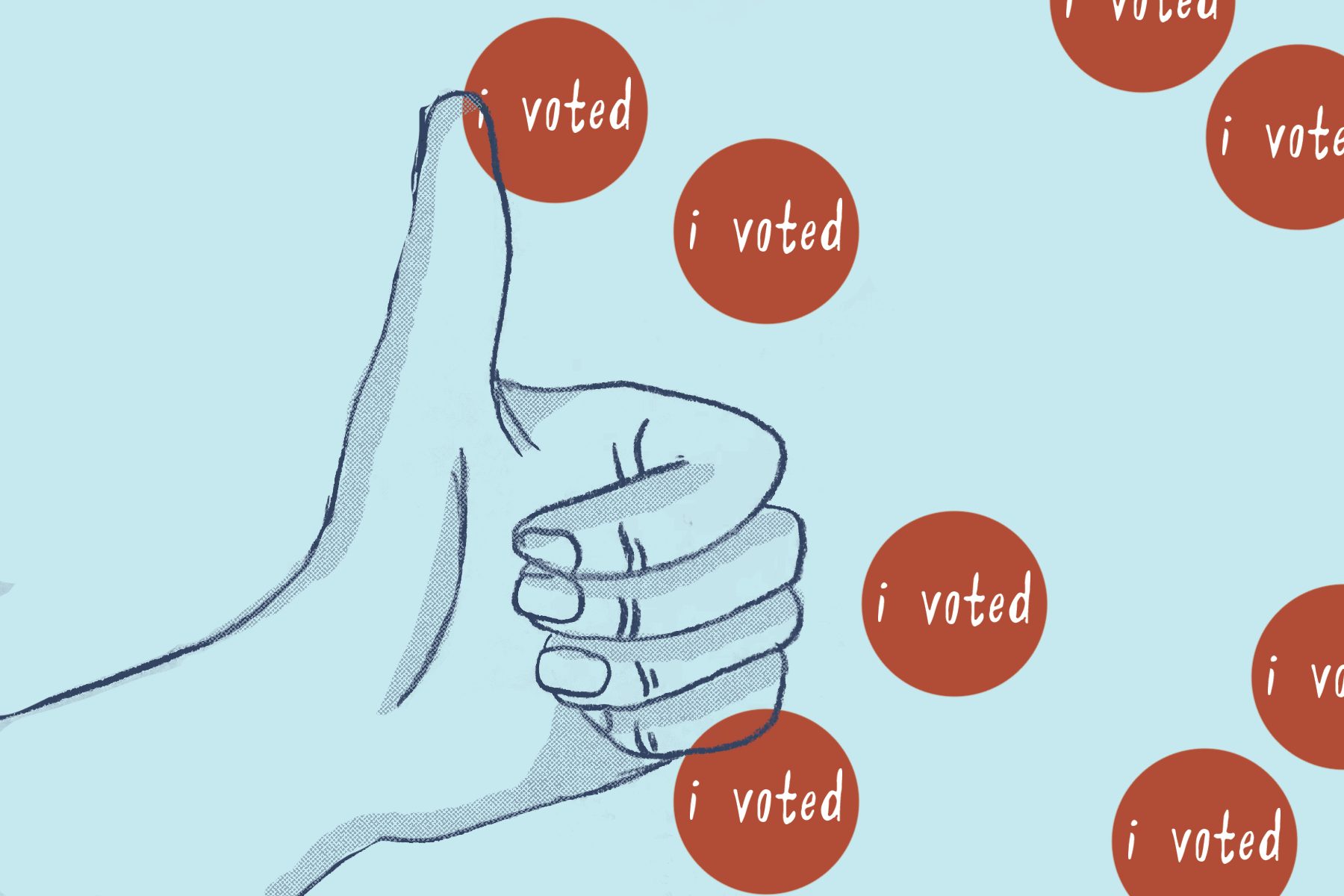The 2020 election looms ominously in the not-so-distant future. For many Americans, this election is of the utmost importance, and the idea of defeating President Donald Trump is a daily thought. Simultaneously, many Americans feel helpless, don’t believe their vote matters and think the election results are already out of their hands. Many of us, myself included, have just recently come of voting age and will be participating in the presidential election for the first time.
How do you combat this drop-in-the-ocean syndrome? How can you grab the reins and take control of the election? Actually, there are many avenues you can take to make your voice heard.
Overcoming Feelings of Defeated
Many young, progressive voters are disappointed with their options. While President Trump represents the opposite of what we stand for and his reelection threatens four more years of climate destruction, abuse of immigrants and major cuts in social services, his opponent, Joe Biden, doesn’t offer the radical progressive changes many of us desire either. A vote for Biden might feel like settling.
Many Democrats are disappointed with the outcome of the primaries and lost hope when a moderate (not to mention old, white and male) candidate triumphed over the diverse array of progressive voices.
Furthermore, a single vote feels insignificant considering the scale of the election. I feel defeated when I remember all the passion that I put into the 2016 election for a completely unexpected and disappointing result.
The electoral college contributes to this lack of agency. If I already know which party will take the electoral college delegates, my vote isn’t really important, right? Wrong.
The 2020 ballot holds a lot more than these two candidates. Your voice is more powerful than the numbers tell you.
The Down Ticket and Referendum
You will be voting not only for the next president but for state Congress representatives and senators. This is referred to as the down-ticket because the voting choices appear directly below the presidential candidates of the party they identify with.
The referendum questions are also a vital chance for the citizenry to directly tell the United States government what matters to them. For example, the Massachusetts ballot will include a question about implementing ranked-choice voting, as well as one on mechanics’ rights.
Even if the presidential candidates don’t excite you, the down-ticket and referendum certainly offer candidates and issues to be passionate about.
The questions are sometimes confusing, though, and for this reason, it is important to do your research in advance, just as you should before choosing a presidential candidate.
Do Your Research
Maybe you don’t know who you support, maybe you don’t know why you support your candidate and maybe the referendum questions are not obvious to you. Luckily, you still have plenty of time.
Research who is on your state’s ballot, and research where they stand on the issues that matter most to you. You can listen to speeches, look up someone’s voting history, check out their campaign page and read news and opinion pieces about each candidate.
Phone Banking
Most campaigns, presidential and otherwise, include massive phone banking efforts. Phone banking means calling random selections of potential voters and informing them about why they should vote for your presidential, senatorial or congressional candidate or why they should vote yes or no on a given referendum question.
Rosie Skovron works for Green Corps, a nonprofit organization that campaigns for candidates who value environmental protection and climate change mitigation, among other issues. Currently, Skovron is calling individuals who have indicated an interest in certain government programs, such as a second stimulus check.
“We try to make that connection for them between government and actual tangible results in their day to day life,” said Skovron. She emphasizes to contacts that their needs and wants are dependent upon the decisions of elected officials. “We have a persuasion piece. If contacts are undecided about if they’re going to vote, or who they’re going to vote for, then we offer our opinion about who we’re supporting.”
Though phone banking can be frustrating, Skovron believes it is impactful and really does change people’s minds. “A lot of people who think, ‘my vote doesn’t matter’ or ‘I don’t really like either candidate’ change their minds after the call,” she stated.
“It’s so much more personal than an ad on TV or a post on Instagram. Someone is calling you to ask about your life and have a conversation with you. It’s way more powerful than an ad in your face,” said Skovron. She pointed out that a phone call is especially meaningful to people who have been living in isolation due to the COVID-19 pandemic.
Skovron is officially employed as a phone banker, but volunteering at a phone bank for various campaigns is equally as easy and impactful. You can visit the campaign website of a candidate you support and fill out a form indicating you’d like to phone bank. Alternatively, you can find organizations whose values align with yours and volunteer to phone bank on their behalf.
Become a Poll Worker
The election would not happen without those who work at the polling locations. Many poll workers in the past have been senior citizens, many of whom are now no longer comfortable working essential jobs during the pandemic.
If you are comfortable, consider signing up for this important service by contacting your local polling place.
Social Media
When thinking of politics on social media, you might automatically think of “fake news,” or alternatively, you might picture an internet troll incoherently ranting on Facebook and arguing with strangers in the comments section. However, social media is a powerful tool, so sharing links to fact-checked resources or sharing a post articulating your researched opinions can go a long way.
Most millennials and Gen Zers have relatively large followings on social media — generally, several hundred — so sharing resources, information and political stances on your social media platforms ranks high on the impact scale. When you share a post promoting a politician you support or a referendum question you are passionate about, you’re likely reaching hundreds of people.
For better or worse, social media has become a primary source of news. A recent study conducted by the Pew Research Center indicates that 55% of American adults (and thus, potential American voters) use social media as a news source at least part of the time. For some social media users, Instagram and Facebook might be their only source of information regarding the upcoming election; your tweet might constitute someone’s news.
Abi Pipkin, a 20-year-old American voter, frequently shares political infographics and other resources to her Instagram story. “I usually share posts and resources that I’ve learned from and have helped me think about the world and politics in a different way that I think other people would be able to get the same thing from,” said Pipkin. “Or, [I share] something that says something I believe in a more accessible way.”
She has been influenced by others’ social media infographics and passes the information along. Pipkin is thoughtful about what she shares, aware of the 921 followers she is possibly reaching. She tries to share posts she thinks will inform her followers but not isolate them.
“I don’t know, the posts might be polarizing, but I’m just sharing things that I agree with and I think would be easy for other people to understand. It could be isolating people [who don’t agree]. That’s what I’m trying to avoid,” Pipkin explains. She veers away from sharing posts that sensationalize topics, favoring resources that present issues in a digestible manner.
Your social media following is the audience right at your fingertips. By thoughtfully participating in politics on social media, you can both learn from others and give your own followers some food for thought.
Talk to Your Peers and Family
When all is said and done, your highest-ranking sphere of influence is the people you interact with daily, especially friends and family. Your friends and family likely respect your thoughts and opinions, so discussing the upcoming election with them could potentially sway their opinions on voting and who to vote for. Even better, you’ll learn from your peers in the process.
So, what are you waiting for? Read up, and get out there on the campaign trail.

















